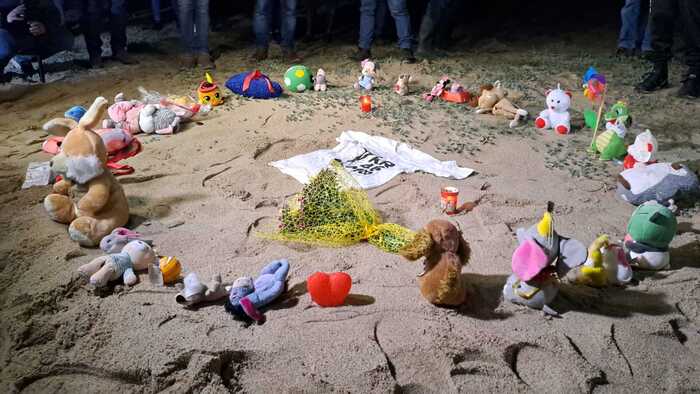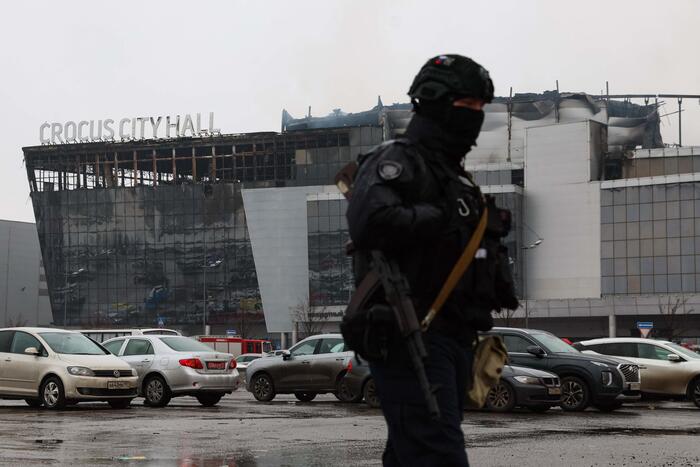Afghan Diary: Afghanistan's defeated ghost army - "They wanted revenge, but there was no other plan"
Created: 12/14/2021, 10:02 AM
The world watched with horror at the rapid pace at which Afghanistan fell to the Taliban.
Natalie Amiri, international correspondent, wants to know why the army barely offered any resistance.
Kabul / Kandahar - A major problem that led to the fatal misjudgment of the situation in Afghanistan was that the international community has always focused on Kabul.
And the governments there knew exactly what to say in order to keep the West happy and in the flow of money.
I call this the pink Kabul bubble.
But Kabul is not Afghanistan - as much as the West might have wished for it and glossed over it.
Who are the millions of people outside of Kabul?
How do you feel about the Taliban's takeover?
About the situation of women?
About who is to blame for the current situation, who is happy or has to hide?
I want to get out of Kabul.
On the plane to Kandahar, I ask the stewart if I can change seats because I would like to film out of the window.
A man, in a row in front of me, is asked by Stuart, he gets up and tells me that because I'm a guest in his country, he's happy to do it.
I sit down by the window.
The young man next to me greets me with “Hi.
How are you? ”, In perfect English.
Afghan Diary: The defeated army of Afghanistan - and the fatal pink Kabul bubble
I ask him if he is visiting and why exactly at this time. No, he would have grown up with his mother in San Francisco, would have come back to Afghanistan at the age of 17 because his father would have called him. His father was a general in the army. He himself joined the Afghan army in 2019. He is flying to Kandahar for the first time. But he won't stay there long. The next day his flight would go to Iran. He will then settle there or in any other country. Anywhere, but no longer in Afghanistan *. There is no longer any room for him in his country, for which he gave up his life in the USA.
Noman, that's his name, tells me: “You will find one.
In the first days after the fall of the Ghani government, the Pakistani secret service handed over the army's databases to those who had seized power.
Now the Taliban have all names, including fingerprints.
The databases are connected to the scanners at Kabul airport.
So you go to the airport, think you're coming out, then your fingerprint is taken, they pull you out and a black cloth is pulled over your head.
And then the person disappears or is killed.
They don't let you live
Some of my friends are therefore now dead. "
In the fourth part of her Afghan Diary, Natalie Amiri travels to Kandahar and follows in the footsteps of the Afghan army.
© N. Amiri / N.Bruckmann / M.
Litzka / afp
According to Human Rights Watch, Taliban forces in Afghanistan have executed or violently disappeared more than 100 former police and intelligence officials in four provinces since taking over the country on August 15, 2021, despite an amnesty announced.
And these are just the cases that HRW is aware of.
His father will almost certainly be on the list, Noman tells me.
He's hiding right now.
Tried to get out overland.
Arrival at the airport in Kandahar: Former policewoman burned uniforms after the Taliban came to power
Our driver, who picked us up at the airport in Kandahar, was also a policeman. Now he has lost his job, not only that, he is afraid that the Taliban will recognize him and hold him accountable, as thousands of people who have worked in the Afghan security apparatus do. He takes me to a simple mud house on the outskirts of the city. We step into the inner courtyard, then we go up a few flights of stairs, children look at me from all the windows that look into the inner courtyard.
I push a curtain aside, stand in a small room, six people are sitting there.
A young woman is the policeman's former colleague, she is introduced to me.
The night the Taliban captured Kandahar, they burned their uniform, their badges, their stars, everything in the courtyard.
She was respected by her colleagues while working as a police officer in Kandahar.
I ask her mother how she feels about the situation that her daughter no longer has a job and has to go into hiding.
The mother tells me: "I was also a police officer, we both ensured security, fought against the Taliban and have now lost everything."
Afghanistan's army: misjudgment of motivation - and fictitious numbers of troop strength
On the side of the Federal Foreign Office, it says: “Our goal is for Afghanistan to be able to help itself in the medium term.
We have to put it in a position to defend its young democracy on its own against the attacks of its opponents.
We cannot allow the country to fall back into extremist hands.
That would also endanger the security of the people here in Germany.
That is why Germany is particularly helping to build up the Afghan police and army. "
Our government has only ever thought of money, that was the only thing they thought of.
Their motivation was money.
So they sold the land and then they went and sacrificed us.
Noman, former Afghan soldier
The current state is exactly what one wanted to prevent - and was not able to do it. For many reasons. Like the misjudgment of the motivation of the Afghan soldiers, who were never as numerous as the generals indicated. 300,000 soldiers are said to have not been able to win against around 60,000 Taliban fighters. Now comes to light: There were never active 300,000 soldiers in action.
When I asked Noman if the generals gave fictional numbers to get more money, he replied, “I can't speak for the entire army.
But I can say that in the units I was in there were some who took their family members into the army who, although they were never deployed, got their salaries.
Our government has only ever thought of money, that was the only thing they thought of.
Their motivation was money.
That's why they sold the land and then they went and sacrificed us. "
Meeting in Kabul with the grandson of the last king of Afghanistan: US money
"I think the past 20 years have been an incredible golden opportunity that we Afghans have missed." Who is "we", I ask the grandson of the last king of Afghanistan, Sardar Muhammad Nadir Naeem, whom I meet at his house in Kabul . "The Afghan people, Afghanistan."
He stands up.
“Let me tell you a story.
Ex-President Karzai came to my grandfather every two or three days and informed him about developments in the country.
I remember one visit in particular.
He stormed into the room, Karzai always took a quick step, happy, ”Sardar Muhammad Nadir Naeem describes to me.
“He said: Your Majesty, he was still addressing my grandfather Zahir Shah by his title.
So he rushed in and said, Your Majesty, I have great news for you.
My grandfather said, sit down first, ”continues the grandson of the last Afghan king.
more on the subject
Afghan Diary: In the stronghold of Talibanism - "They destroyed the police officers' gravestones themselves"
Afghan Diary: “What do you want to do?
Kill us all? ”Afghanistan's women under Taliban rule
Afghan Diary: 100 days after the Taliban came to power - The trip to Kabul
“Karzai was barely seated when he started: I have just come back from the USA and do you know what you promised me?
My grandfather replied: No.
Karzai said, five billion dollars.
My grandfather looked at him and said, aha, five million dollars.
And Karzai replied, No, no, five BILLION dollars.
My grandfather said: can you repeat that?
And he turned to me, he did that often when he wanted to be one hundred percent sure and asked: What was he just saying?
I said;
Sir, the president said five billion.
That means five thousand million, ”says Sardar Muhammad Nadir Naeem.
His grandfather then said: “Now Afghanistan can really get rich.” Right at that moment it is getting dark in Sardar Muhammad Nadir Naeem's house, there is a power failure.
The shah's grandson and I no longer even see our own hand in front of us.
It is very quiet for a brief moment before the generator starts.
Where did the money go?
No Afghanistan strategy, but more and more lies
Five billion was only a fraction of the sums that flowed into the country, almost endless. Trillions arrived in Afghanistan - or they didn't. “Where's the money,” I ask Sardar Muhammad Nadir Naeem: “I think quite a few Afghans have the same question,” he replies. “You know what, the reality is that this money never got to Afghanistan at all, only a fraction. But the money helped make Afghanistan one of the most corrupt countries in the world. However, the corruption did not only take place on the Afghan side. There was also a high level of corruption on the donor side. The amount that flowed into Afghanistan is often compared with that which the Marshall Plan for Europe envisaged and spent. "
When the Taliban were driven out of Kabul and Kandahar, even out of the country, the US military had no idea how to proceed.
How do you make a country more stable?
How do you ensure basic insurance?
How do you contribute to the modernization of the country?
There were no clear instructions on what to do.
Ryan Crocker, US Ambassador to Afghanistan from 2011-2012
"That was a smaller sum," I reply. “The big difference is that the Marshall Plan came with a vision and an educated population at the same time. Afghanistan came out of a three-decade war. There was nothing. Kabul was level with the ground. And there was no vision. The US responded to the September 11th terrorist attack. They wanted revenge. They fought al-Qaeda, but there was no other plan, "says Sardar Muhammad Nadir Naeem and I hear the generator hum. Afghanistan does not have its own electricity, it has to be imported from Uzbekistan. There are power outages every day for several hours. Even with people who cannot afford generators.
No Afghanistan strategy.
But more and more lies.
The US journalist Craig Whitelock analyzes this in his Insider Report, the recently published "The Afghanistan Papers".
The role of the US: No clear plans to modernize the country - except to give money
Ryan Crocker, US Ambassador to Afghanistan from 2011-2012, said in an interview: “When the Taliban * were driven from Kabul and Kandahar, even from the country, the US military had no idea how to proceed.
How do you make a country more stable?
How do you ensure basic insurance?
How do you contribute to the modernization of the country?
There were no clear instructions on what to do. "
Besides giving money.
90 percent of the Afghan national budget was financed by the international community until August 2021.
The US alone paid $ 145 billion to build the country.
In addition, the US Department of Defense contributed $ 837 billion to the US war in Afghanistan.
2,443 American soldiers died in action, 1144 soldiers of the Allied troops.
The number on the Afghan side was far greater.
At least 66,000 Afghan soldiers were killed.
Declaration by Australia, Belgium, Bulgaria, Denmark, Germany, the EU, Finland, France, Japan, Canada, New Zealand, the Netherlands, North Macedonia, Poland, Portugal, Romania, Sweden, Switzerland, Spain, Ukraine, the United Kingdom and the United States:
We are deeply concerned about the reports of extrajudicial killings and forced disappearances of Afghan security forces officials as documented by Human Rights Watch and others.
We emphasize that the acts in question constitute serious human rights violations and are in contradiction to the amnesty announced by the Taliban.
We call on the Taliban to effectively enforce the amnesty for former members of the Afghan security forces and former government officials to ensure that it is consistently observed across the country.
The documented cases must be investigated immediately and transparently and those responsible must be held accountable.
These steps must be made public to act as an immediate deterrent to further killings and disappearances.
We will continue to judge the Taliban by their actions.
Sigar - the US committee of inquiry into Afghanistan, which has so far published eleven reports since 2008 - comes to the following conclusions in its final and eleventh report:
“The US government was constantly striving to develop and implement a coherent strategy for what it wanted to achieve. 2. The US government has consistently underestimated the time needed to rebuild Afghanistan, creating unrealistic schedules and expectations that make spending quick priority. These decisions increased corruption and made the programs less effective. 3. Many of the institutions and infrastructure projects built by the United States were unsustainable. 4. Counterproductive measures and practices by civil and military personnel frustrated efforts. 5. Persistent uncertainty has seriously undermined reconstruction efforts. 6. The US government did not understand the Afghan context and therefore failed to adapt its efforts accordingly.7. US government agencies rarely conducted sufficient monitoring and assessment to understand the impact of their efforts. "
The defeated army of Afghanistan: The chaotic US troop withdrawal - and corrupt generals
“Our army has never been trained to wage guerrilla war in the last 20 years - but we did have guerrilla war, Sardar Naeem told me.
“Only the special forces got along with the Taliban, the handicap was that the Afghan army did not have an air force, the Americans did not want that and the Pakistanis did not want that.
So the Afghans were dependent on the American air force until the end. "
The unconditional withdrawal of US President Joe Biden * made it unmistakably clear to the Afghans: We will no longer support you. “The generals knew that their backing was breaking away at that moment. At the same time, all of the military constructors who had supported the Air Force for many years were withdrawn, ”continues Sardar Naeem.
“Corruption was also an enormous problem within the army here,” Zahir Shah's grandson told me. “Billions have flowed into the army and you can't even get a fresh bottle of water to the soldier who is fighting? Then you have a problem. "The soldiers are not stupid," they saw, while waging a war they no longer believed in, their generals indulging in luxury and they knew that if they die on the battlefield, it would be the ones Generals wouldn't care. Because if they were defeated, they would be gone in seconds, sitting on the plane, out of Afghanistan. ”And that's exactly how it was.
“Our army was certainly not 300,000 strong, as it was always said.
We had a ghost army.
Spirit teachers, enormous corruption everywhere.
The question I am asking is: did the US know?
You had the SIGAR reports.
Europe knew it too.
Why have these facts not been used as leverage against the Afghan government? "
The soldier Noman looks at me and I see a depth in these young eyes, a knowledge of what is happening in the world, as I only notice in Europe with very old people: “Losing your country is like losing your mother ", Noman tells me goodbye and posts on his Facebook page:" Good Bye Afghanistan ".
(Natalie Amiri) * Merkur.de is an offer from IPPEN.MEDIA.
7 days in Afghanistan: Afghan Diary by Natalie Amiri
We are all still aware of the tragic images of the days around August 30, 2021 that accompanied the withdrawal of international troops from Afghanistan. Thousands of people desperately tried to get on one of the planes at Kabul airport to travel west. They did not want to live in an Afghanistan ruled by the Taliban again. Few of them were lucky enough to get a seat on board.
Since then, the Taliban have ruled the torn and impoverished country, which many observers are predicting a humanitarian catastrophe this winter.
Natalie Amiri, international correspondent, kept an impressive diary during her most recent research stay for her new book (to be published on March 14, 2022) in Afghanistan.
IPPEN.MEDIA publishes the diary of their journey in seven parts both online and in print in some titles such as Münchner Merkur or Frankfurter Rundschau.


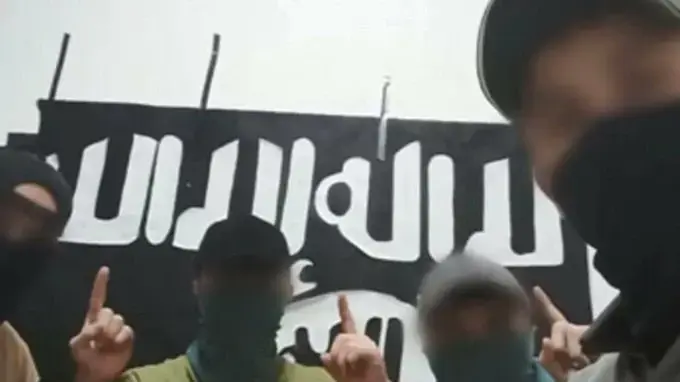
/cloudfront-eu-central-1.images.arcpublishing.com/prisa/VU7S6EWZZVMMDGHINQUMAFJHCE.jpg)
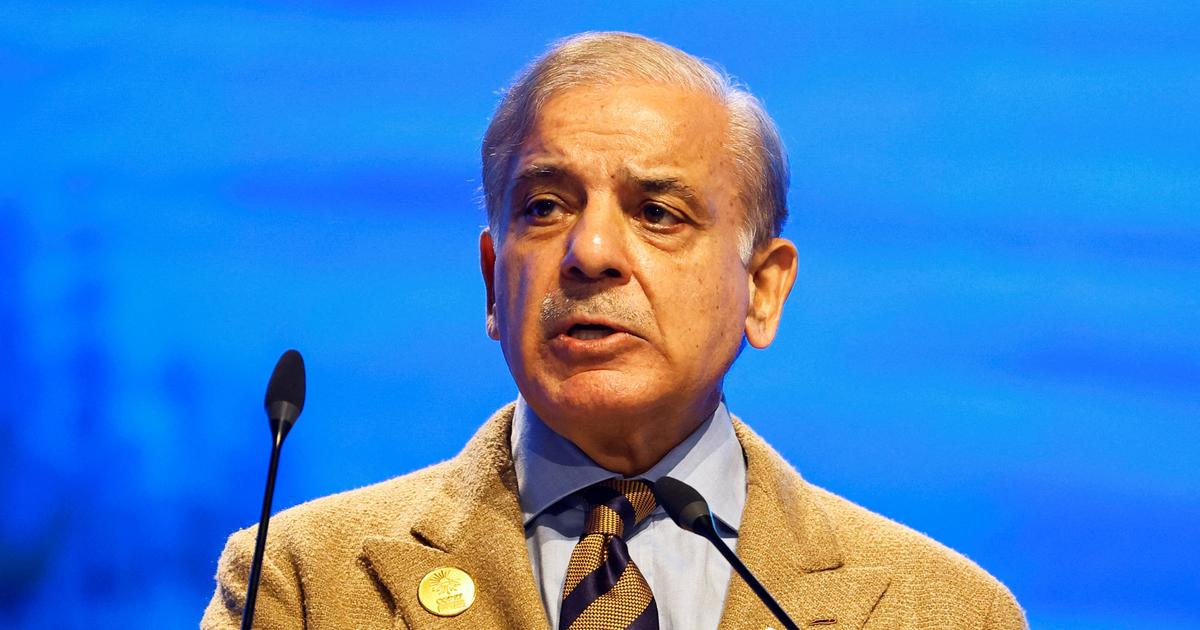
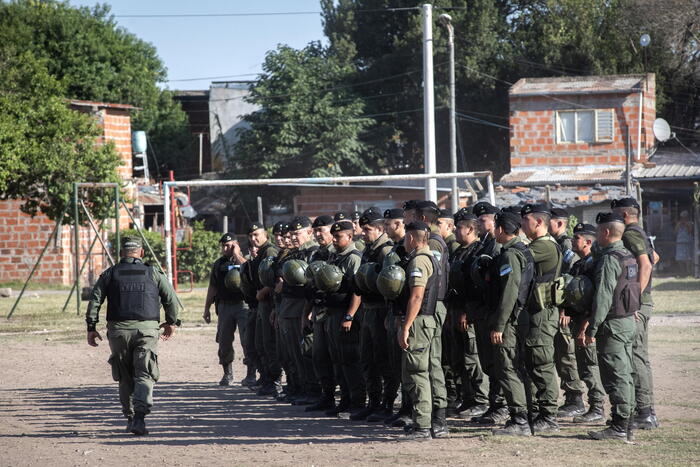
/cloudfront-eu-central-1.images.arcpublishing.com/prisa/KA3LQ5ZEAFEQXOIZXJEEVDUZUQ.jpg)
